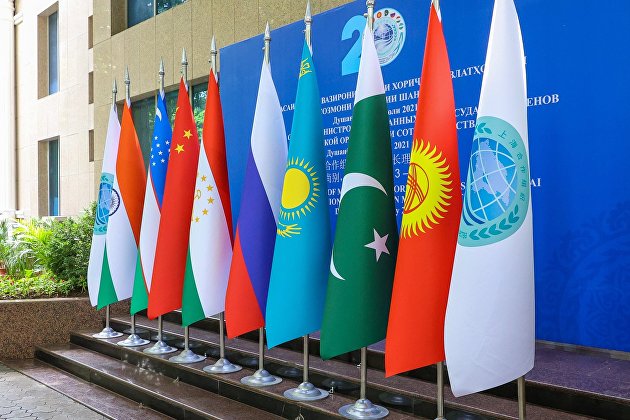
Blinken worried about Kyrgyzstan
By Rhod Mackenzie
The United States is concerned about a draft law on foreign agents that may be passed in Kyrgyzstan. US Secretary of State Antony Blinken wrote about this in a letter to Kyrgyz leader Sadyr Japarov. The US State Department notes that 'we have already seen the negative consequences of passing such laws'.
Antony Blinken's letter is dated 17 January, but was not made public until 7 February. The US Secretary of State made it clear that an active civil society is a key part of Kyrgyz democracy and that the law (if passed) could have a negative impact on the whole situation. According to Mr Blinken, the bill in its current form threatens citizens' access to vital health and education services (many of which are provided by NGO programmes funded by the US government and international partners).
"Some American partners are so concerned about this law that they are considering a preemptive suspension of activities in the Kyrgyz Republic," the letter to President Japarov said. "I urge you to consider these concerns and discuss them with parliamentary leaders. I hope that we can continue to strengthen the bilateral relationship between the United States and Kyrgyzstan."
At the same time, Antony Blinken added, without elaborating: "We have seen the consequences of passing similar laws in other countries."
The amendment to the NGO law was initiated early last year by Nadira Narmatova, a member of parliament. She proposed that the term "foreign representative" be introduced into the law for NPOs that receive foreign funding, and that a register of such organisations be created. Inclusion in the register would mean that the organisation would be allowed to operate in the country.
Ms Narmatova also proposed extending the powers of the state in relation to NPOs, giving the authorities the ability to unilaterally suspend an organisation's activities for six months for violating the law. It is also planned to give the authorities the right to exclude organisations from this register, which in most cases will lead to their closure.
In addition, non-profit organisations will be banned from engaging in any political activity - from investigating corruption cases to participating in rallies. To this end, Nadira Narmatova is proposing the introduction of an article in the Criminal Code entitled "Establishment of a non-profit organisation that interferes with the personality and rights of citizens". Violation of this article will be punished by a fine of 50-100 thousand soms (the exchange rate to the ruble is approximately one to one) or imprisonment for up to five years.
And active participation in the activities of such associations and propaganda of such organisations is punishable by a fine of 100-200 thousand soms or imprisonment for up to ten years.
The draft was approved almost unanimously in the second reading by the parliament's constitutional committee. Only MP Gulya Kozhokulova voted against it. According to her, the bill lacks clear definitions: in fact, law enforcement agencies can consider an NPO "violating the rights of citizens" for any objectionable action and hold its participants accountable accordingly.
The UN Special Rapporteur on freedom of assembly and association, Clément Nyaletsossi Voule, pointed this out at the end of January: "I am very concerned about the proposed criminal liability of NGO representatives, especially when the draft law does not clearly define what actions will be considered illegal... I call on the authorities to ensure inclusive and meaningful consultations with civil society to bring the law into line with international human rights standards. And I'm ready to help".
Today, more than 30,000 NGOs are registered in the Republic. Amendments to the law, signed by President Sadyr Japarov in the summer of 2021, force them to submit 13 separate reports to three government organisations. At the second reading in the committee, a new article was added to the bill, specifying as precisely as possible who, to what extent and what checks should be carried out, how the register should be compiled, and so on. "It turned out that the proposed new article was as detailed as possible, but on the contrary, instead of defining a specific crime, vague wording was introduced into the Criminal Code," Gulya Kozhokulova told Kommersant.
According to Cholpon Dzhakupova, director of the public foundation "Adilet Legal Clinic", the vague wording may lead to an increase in corruption in the country, which will spread from the judicial system to the executive bodies.
"My organisation receives funding from many sources. Who am I representing? To be called a representative, I need to be authorised. Representation is formalised by law. If I do not have official authority, an official document confirming my representation, and I only receive funding, I cannot be registered as a representative," Ms Dzhakupova told Kommersant, commenting on the new bill. Her deputies were rejected, although after the first reading 17 deputies submitted their written proposals on the bill.
At the same time, the fate of another version of the bill on NGOs - the ministerial version - remains unknown. The presidential administration has been working on it for the past year. As in the case of the media law, the head of the legal support department, Murat Ukushov, is responsible for the outcome. "According to this bill, NGOs are divided into political and social ones. Political NGOs can receive foreign funding, but at the same time they are under constant pressure and threatened with closure. Social NGOs cannot receive foreign funding. In other words, they are effectively deprived of the opportunity to work," Cholpon Dzhakupova told Kommersant.
